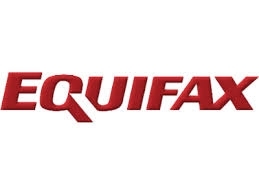Credit Reports & History
We know you work hard to make sure your academic transcript is in good shape. But another transcript that needs to be in good shape is your financial transcript (credit report). You start laying the foundation of your credit history the first time you borrow.
Building (Good) Credit History
The only way to establish a credit history is to start buying on credit. It reveals your ability to pay for things that you buy or use.
Below are a few ways that you can start building good credit:
- Have bills in your name. If bills, such as utility and phone bills, are in your name you can build credit by simply paying them.
- Always pay bills on time. If you can, set up automatic payments so you won't risk forgetting about your payments.
- Keep credit card debt low. Use your card regularly, but don’t spend money you don’t have.
- Stay well under your credit limit. You’ll be scored favorably if you keep below 30% of your total credit limit.
Credit Bureaus
The three national credit bureaus are Experian, Equifax, and TransUnion. Think of the credit bureaus as the Registrar's Office.
They collect two types of information about you:
- First, they collect information about how you use credit and/or loans. The bureaus monitor how much you owe on car loans, mortgages, and credit cards. They also monitor the timeliness of your monthly payments.
- The second type of information is public information about you that might influence the way lenders evaluate your creditworthiness. Some of the things this can include are records of bankruptcies, foreclosures , and any court judgments. But credit bureaus will not gather any personal information that is not directly credit-related. So they will not monitor how much you spend on rent, or utilities, or anything you pay for in cash. Also, a credit report will not show age, sex, race, income, or checking/savings balances.
Who cares about my credit?
Lots of people care about your credit score. Can we trust you? That is the questions that a lender will answer based on your credit. Credit is your "financial trustworthiness". Your credit record is the most important factor lenders consider when you apply to borrow money. Lenders will offer you better terms and lower interest rates if you have good credit ratings.
It matters when you are:
- Wanting to borrow a loan
- Apply for a credit card
- Rent or buy a home
- Apply for a job
- Get insurance
- Purchase cars, large appliances or cell phones
How Can I See my Credit Report?
You are entitled to one free copy from each of the credit bureaus each year thanks to the Fair and Accurate Transaction (FACT) Act.
The federal government established a website to obtain a FREE copy of your credit report or you can call (877) 322.8228. It is a good idea to order your report to ensure the accuracy of the information being reported. Since you own the data, you want it to be correct. If there are errors on it, contact the credit bureau and they will file a dispute with the creditor. Because each of the reports covers essentially the same information, it makes sense to request them one at a time — say one in January, one in May, and one in September. That way, you'll catch any problems early.
Note: Other sites with catchy jingles may offer a free report, but you may be required to sign up for other services.




